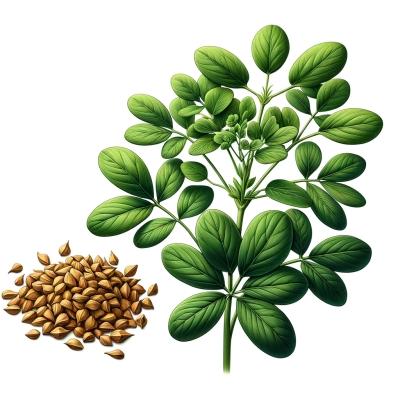
Introduction to Fenugreek and Alzheimer's
This formidable foe in the realm of neurodegenerative diseases affects millions worldwide, ruining the golden years of many seniors. Amidst the relentless search for effective treatments, Fenugreek has emerged as a beacon of hope. This article explores the promise it holds as a new treatment for Alzheimer's Disease. We explore its scientific basis, historical significance, current research, and practical applications.
Understanding Alzheimer's Disease
This debilitating disease unravels the mind's intricate tapestry, leading to memory loss, cognitive decline. It eventually results loss of independence and then death. Its cause, while partially understood, points to a complex interplay of genetic, environmental, and lifestyle factors.
An Overview
Fenugreek, a leguminous plant, has graced traditional medicine cabinets for centuries, being known for its culinary and medicinal properties. Its seeds, rich in phytochemicals, offer a spectrum of health benefits, sparking interest in its potential against Alzheimer's.
The Science Behind Fenugreek as a Treatment
Fenugreek's arsenal against Alzheimer's lies in its bioactive compounds. These include diosgenin and trigonelline, which exhibit neuroprotective properties. These compounds have been shown to modulate pathways implicated in Alzheimer's. This includes amyloid-beta plaques and tau phosphorylation, offering a multi-faceted approach to treatment.
Historical Use in Medicine
From ancient Egyptian embalmers to Ayurvedic practitioners, Fenugreek has been revered for its health-promoting qualities, including anti-inflammatory and antioxidant effects.
Use in Modern Healthcare
Today, its traditional applications are being re-evaluated through the lens of modern science, highlighting Fenugreek's potential in chronic disease management.
Current Research on Alzheimer's
A growing body of research has begun to illuminate Fenugreek's role in neuroprotection. Studies have demonstrated improved cognitive functions and reduced biomarkers of Alzheimer's in animal models.
Ongoing Clinical Trials
Human clinical trials are the next frontier, with several studies underway to validate the efficacy and safety of Fenugreek in Alzheimer's patients. One study published in 2022 showed that after 4 months of fenugreek seed extract supplementation, patients showed promising positive effects on memory, quality of life, blood pressure, and selective oxidative indices levels.
Comparison to Current Treatments
Fenugreek offers a natural, holistic approach. This potentially sidesteps the side effects associated with conventional pharmaceuticals. While promising, its journey from the spice cabinet to the clinic faces challenges. Standardized of dosages must be determined, and comprehensive clinical validation performed.
How to Use Fenugreek for Alzheimer's
Dietary Use
Incorporating Fenugreek into the diet, through seeds, leaves, or powders, can be a simple, yet powerful, adjunct to traditional therapies. For those seeking more concentrated doses, supplements are available, though consultation with a healthcare provider is recommended.
Potential Side Effects and Interactions
Fenugreek is generally well-tolerated, but it may have side effects at very high doses. It is also important to be aware of potential interactions with existing medications. Medical guidance is highly recommended.
Personal Stories: Fenugreek and Alzheimer's
Anecdotal evidence and case studies offer glimpses into Fenugreek's impact on individuals with the disease, providing both hope and a call for more research. Personal testimonials highlight the varied experiences of individuals and families incorporating it into their treatment regimen.
Future Directions in Research and Treatment
Next Steps in Research
The path forward involves rigorous clinical trials, deeper investigations into Fenugreek's mechanisms of action, and exploration of synergies with existing treatments.
Potential Breakthroughs
As research progresses, this herb may well pave the way for breakthroughs in Alzheimer's treatment, offering a natural complement or alternative to current therapies.
Conclusion: Fenugreek's Potential for Treatment
Fenugreek offers a glimmer of hope in the battle against Alzheimer's Disease. Its journey from ancient remedy to potential therapeutic agent exemplifies the convergence of historical wisdom and scientific inquiry. As research unfolds, Fenugreek's place in the Alzheimer's treatment paradigm may well be solidified. This herb may end up being another testament to nature's untapped reservoir of healing powers.
References
